‘Professional tennis in Switzerland is expensive’
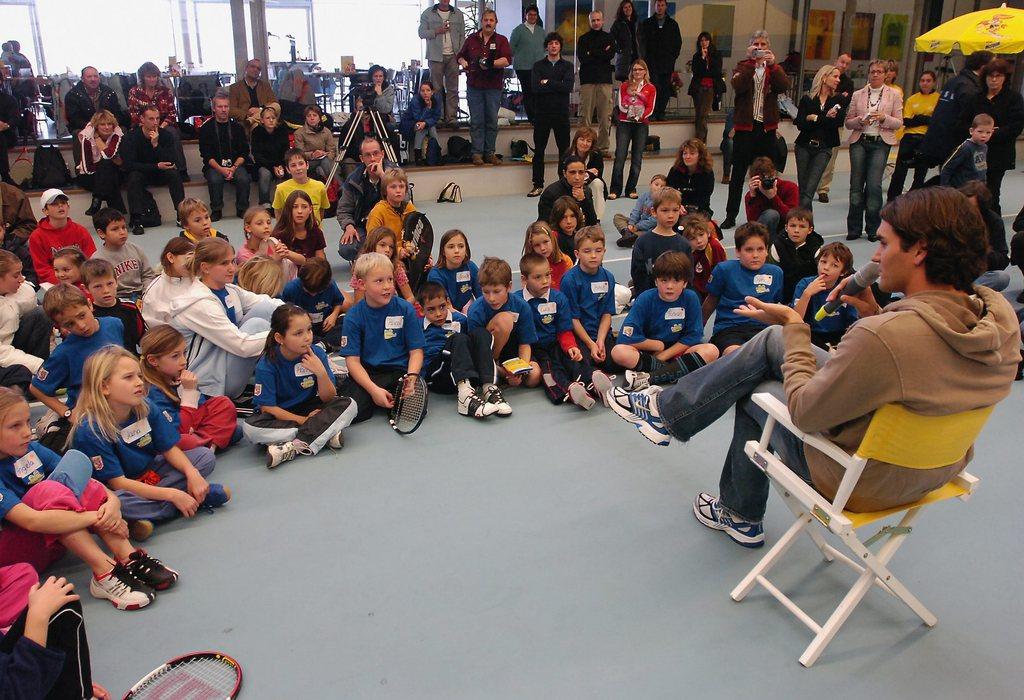
Alessandro Greco, director of team performance at Swiss Tennis, the national tennis federation, tells swissinfo.ch about the challenges of finding and developing young talent, how top stars are born not made – and what he’d say to his own son if he said he wanted to become a professional tennis player.
The rankings in this article were correct as of June 13.
swissinfo.ch: With Roger Federer and Stan Wawrinka both in the top five, Switzerland is currently a tennis powerhouse. But the next highest-ranked Swiss is 34-year-old Marco Chiudinelli (ranked 137) and there’s no Swiss player aged 21 or under in the top 500. Does that worry you?
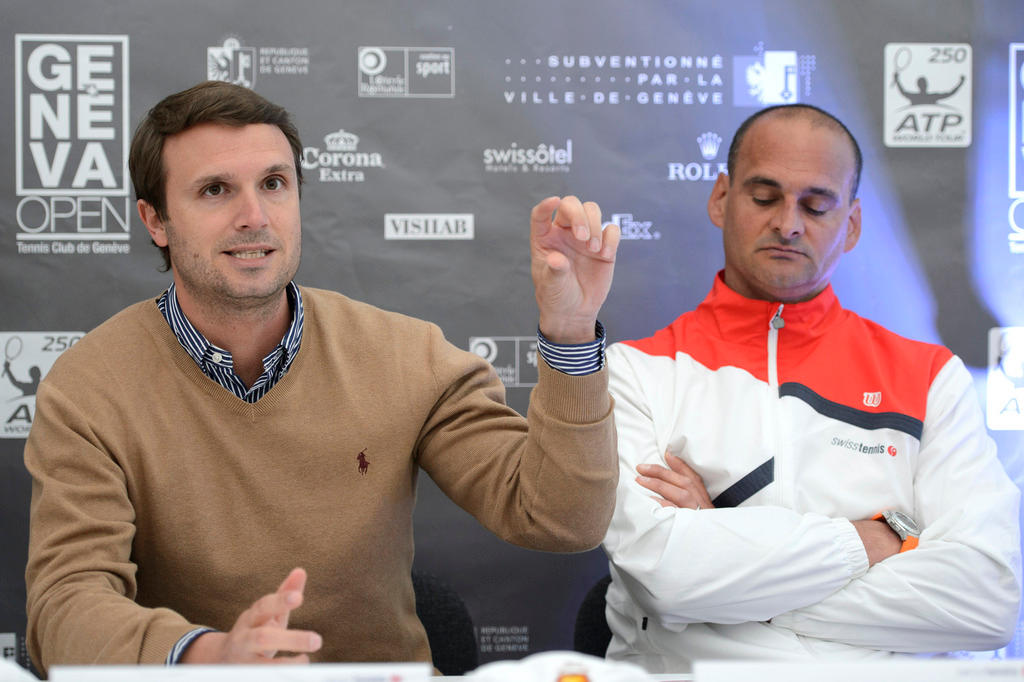
Alessandro Greco: Well, I’m happy in that Roger and Stan are still motivated and still at the top. Of course we have some talented male players – four or five of them are pretty good – but I don’t know if they’re going to be great champions. It’s maybe not the role of the federation to make champions, rather to make very solid top 200 players and then the champion then goes on his own.
swissinfo.ch: Antoine Bellier, the only Swiss player aged 21 or under in the top 800, is ranked 527. Several other countries with populations similar to Switzerland are doing better. Why?
A.G.: I don’t think there is a reason. I don’t think we’re doing anything wrong; we’re working very hard. For male players in particular it is very, very difficult to get into the top 100. The average age [for a top 100 player] is 27-28 so it’s a really long way to go. Our good players are young – they are between 17 and 19 years old – so they need a few more years to break into the top 100.
Other nations are also working very hard and it’s very tough for us. Everybody is spending a lot of money. For example my counterpart at the LTA [Great Britain’s governing body for tennis] has up to £80 million (CHF106 million) to spend, whereas I have CHF2.5 million. So we just have to remain cool, work hard and believe in our young guys.
swissinfo.ch: Where does this money go? What is Swiss Tennis doing to find and develop young players?
A.G.: We do a lot. For the under-14 players we are trying to put them into partner academies like little national centres. Then we have individual projects going on all over Switzerland that we support financially or with know-how. We have the national centre [in Biel] where the best players practise.
There is a certain structure, but tennis is an individual sport so we have to be very flexible and provide people with what they need.
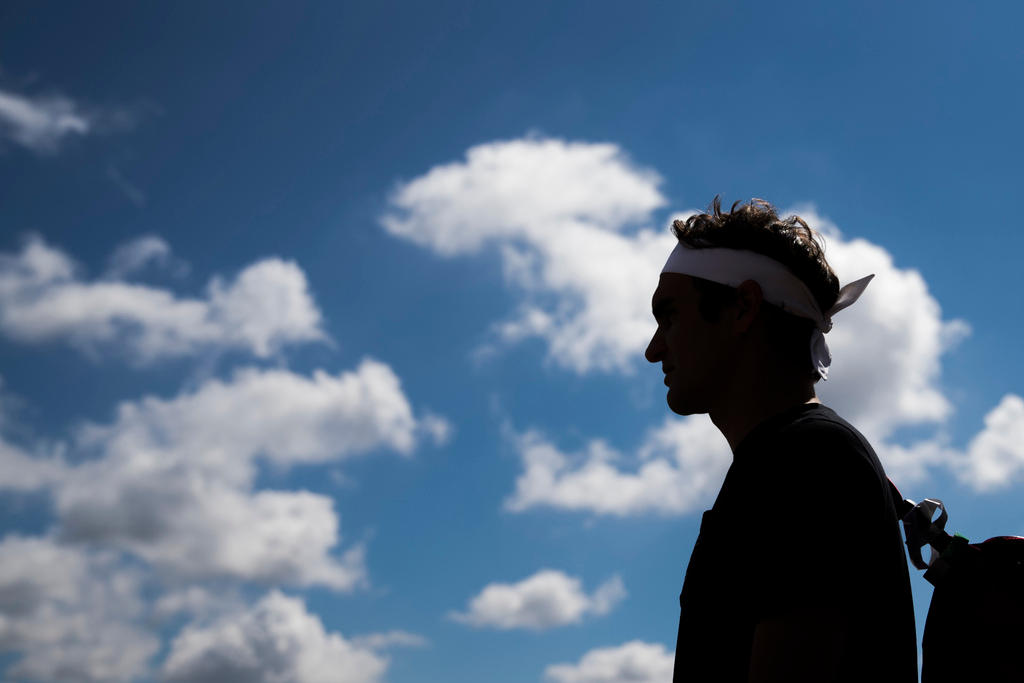
More
Who will follow Federer and Wawrinka?
swissinfo.ch: Turning pro is a big decision for a young person and their family. How hard is it convincing promising young players to consider a career as a professional tennis player?
A.G.: Especially in Switzerland it’s very tough because school and education is very important and it’s difficult to convince them to take this very long and insecure path. In addition, it’s expensive not only for the federation but also for the parents. Playing tennis in a local club or as an amateur is not expensive, but playing professional tennis in Switzerland is very expensive – in a way too expensive unfortunately.
swissinfo.ch: So how do you convince them?
A.G.: We talk to them a lot and explain how it works for them to have a real chance to get into the top 100 and make their living with tennis. It’s a process: you don’t convince them in a week or a month. We work together for two or three years and when they are 17 or 18 and have finished school, we try to convince them – and their parents – to play tennis professionally.
It’s also not a lifetime project. You can try for three, four, five years and if it doesn’t work out, you can go back to school. You don’t lose anything in Switzerland – you have a lot of possibilities with schooling, home-schooling.
swissinfo.ch: If you had a son or daughter who came to you and said ‘dad, I’m thinking of becoming a professional tennis player’. What would you say?
A.G.: If they want to make money and be very famous quickly and they are talented, I would tell them in Switzerland to play ice hockey or football. I think it’s easier to get to the top. Tennis is a very tough sport – it’s an individual sport [unlike football, for example], you have to invest a lot of money. It’s like a family project and this is why tennis can ruin families, because you all have to go in the same direction and often there are different interests in a family: maybe one parent wants to enjoy the weekend while the other parent wants to push the son and drive him to a tournament somewhere.
And if you are injured you don’t get any money. With football you are part of a team and if you are injured you still get your salary.
So tennis is very tough, but it’s a fantastic sport because you are your own boss, you’re an entrepreneur – you get up in the morning and you have to have a strategy, you have to be very focused with your daily schedule. You travel a lot, you learn a lot of languages and see other cultures. I think it’s a perfect sport.
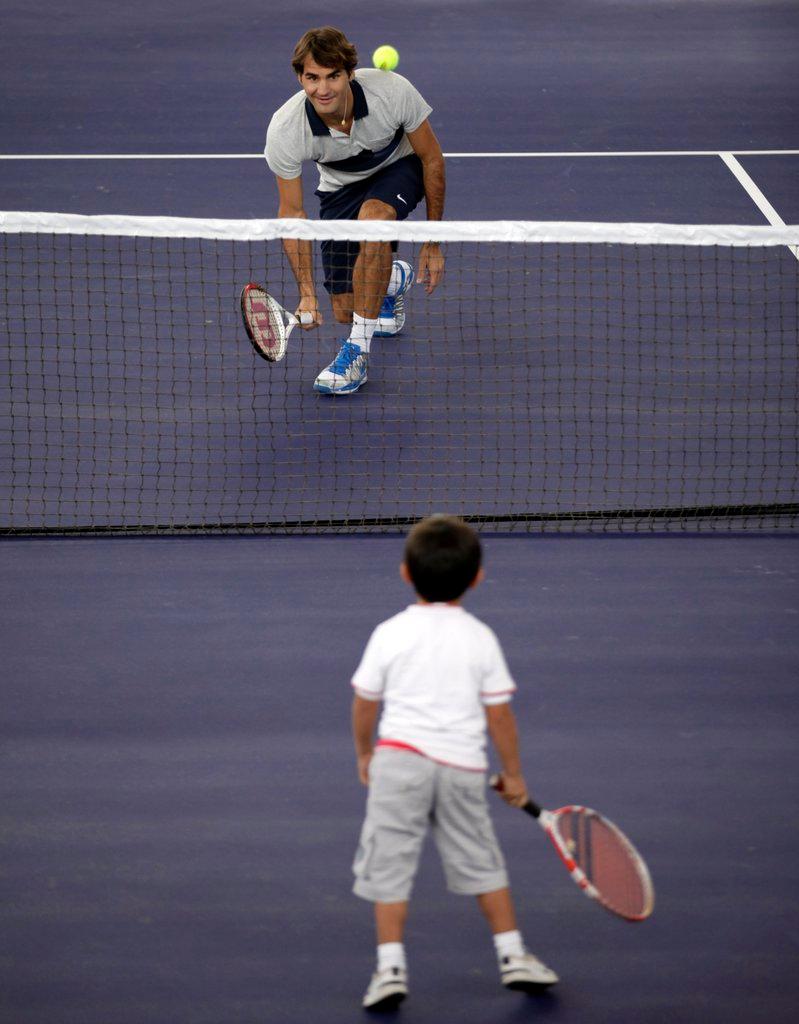
swissinfo.ch: Some people say Switzerland is too comfortable. There isn’t the need to succeed in sport to make a decent living, whereas in Eastern European countries, for example, sport is one of the few ways out of poverty. Is that true?
A.G.: It’s absolutely true. In Serbia for example there isn’t a working federation, they have no really big tournaments, they don’t have a ranking system and they don’t have a national centre, but the people are hungry [for success]. They give their all and sport is like the only way to make it – to be famous and earn money.
In Switzerland life is very comfortable. We live in one of the best nations in the world and we are very spoilt. Our players are spoilt too. I think that’s a big advantage for eastern countries.
swissinfo.ch: How young do you have to catch promising players? You see some children playing who aren’t much bigger than their rackets…
A.G.: The younger the better. You can start at ten and be a good player too, but usually between six and ten you learn quickly. It’s like learning languages – tennis is the same. You have a lot of abilities that decrease when you are older.
swissinfo.ch: How much can Swiss Tennis do? How much of a player’s success is down to you, and how much is down to the individual?
A.G.: If you have a good player who is a good athlete and who loves playing tennis, and you give him good coaches and good balls and a good infrastructure – and if he’s patient and you invest a lot of different resources into him, it’s possible to bring this type of player into the top 300 or 200 maybe.
But to put a player into the top ten or make him a great champion like Roger or Stan, that’s almost impossible because stars are born and it’s completely different.
swissinfo.ch: Is there a difference when it comes to nurturing male and female players?
A.G.: There is a difference. If you want to prepare an athlete for the top 100 or top 200, you have to start earlier with the girls, because they are more mature. Boys develop a little bit later. There’s also a difference in the physical work you have to do – the way you practise is different.
Plus, men’s tennis is more in groups. Boys push themselves to a higher level competing together, whereas girls are treated individually: they often travel with their parents or a single coach whereas boys travel in groups.
swissinfo.ch: But in general the future of Swiss tennis is looking rosy?
A.G.: It depends on the expectations we have. It’s rosy if we consider that we’re a small nation and we have two young female players in the top ten [true at the time of the interview].
I’m very happy that tennis is very popular in Switzerland, but if people expect us to produce another Roger or another Stan, they will be very disappointed. This is why I think we should be very happy with Roger and Stan, be very patient, let young players do their job – and then we’ll see.
How are promising young tennis players developed in your country? What’s the secret to producing world-class players? Discuss this with us in the comments.
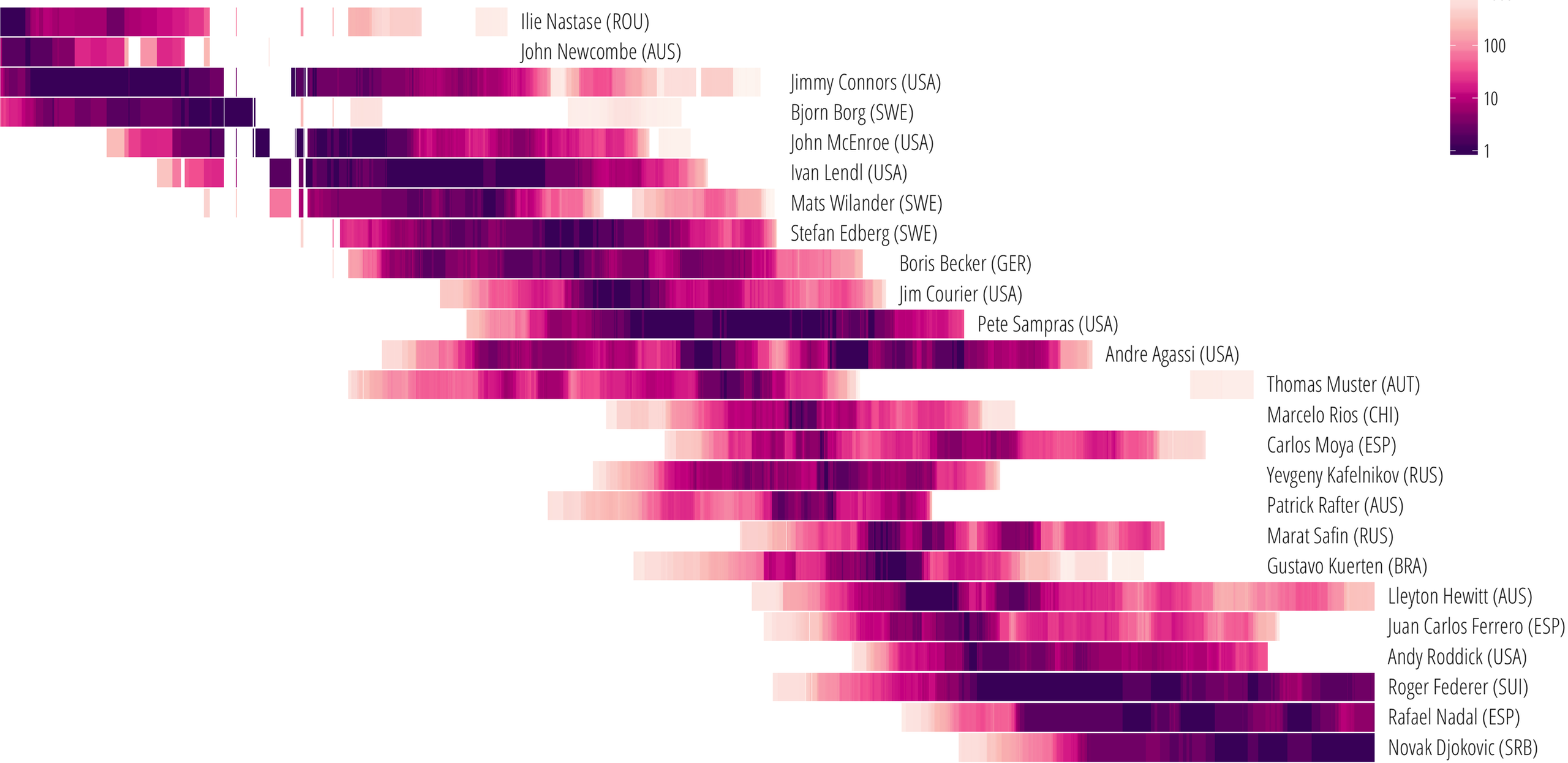
More
The complete history of every No. 1 male tennis player

In compliance with the JTI standards
More: SWI swissinfo.ch certified by the Journalism Trust Initiative

You can find an overview of ongoing debates with our journalists here. Please join us!
If you want to start a conversation about a topic raised in this article or want to report factual errors, email us at english@swissinfo.ch.